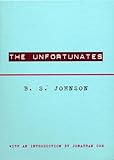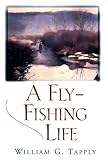The “staff picks” shelf in any good independent bookstore is a treasure trove of book recommendations. Unmoored from media hype and even timeliness, these books are championed by trusted fellow readers. With many bookselling alums in our ranks, we offer our own “Staff Picks” in a feature appearing irregularly.
 Red Lights by Georges Simenon recommended by Andrew
Red Lights by Georges Simenon recommended by Andrew
Until recently, I had always associated Belgian author Georges Simenon with the Inspector Maigret mysteries. Then, on the front table of my local indie book shop, I began seeing a series of seductively glossy paperback novellas from NYRB Classics, each credited simply to Simenon, each with an introduction. Move over Maigret, this was something different.
In the middle of last century, Simenon wrote a number of psychological novels, what he called his romans durs (literally “hard novels”). Red Lights is a novella set in the United States, as a white-collar couple from 1950s New York City drive to Maine on the Labor Day Weekend to fetch their children from camp. The novella tracks the ensuing 24 hours with chilling acuity. The narrator is psychologically ultra-aware, digging into the mind and mental state of the husband as his life is turned upside-down. His future with his wife, his life as he’s known it – everything he’s taken for granted – is suddenly in jeopardy due to the events unfolding on the journey to Maine. An altogether different kind of mystery from the man behind Maigret.
 The Unfortunates by B.S. Johnson recommended by Garth
The Unfortunates by B.S. Johnson recommended by Garth
While some of the “experimental fictions” of the 1960s have gone the way of the pet rock, B.S. Johnson’s The Unfortunates deserves a place on that decade’s honor roll, alongside Cortazar’s Hopscotch and Barth’s Funhouse. Johnson conceived of The Unfortunates as an Oulippan departure from narrative convention: a “book in a box,” whose 27 bound pamphlets may be read in any order. Together, they tell the semi-autobiographical story of an English sportswriter dispatched the the provinces to cover a soccer match. As he wanders the streets, before and after the game, the narrator finds his thoughts returning to the death of a friend who was a native of the town. The novel itself achieves a similarly bifurcated effect: while its Oulippan form is good sport, the gently melancholic stream-of-consciousness narration builds to something positively moving. Johnson himself died in 1973, at age 40. Whether due to the production expenses or to the perceived conservatism of U.S. readers, The Unfortunates wasn’t published stateside until just last year. Thanks to New Directions for this act of resurrection.
Perfume by Patrick Suskind recommended by Ben
From its grotesque first pages to its orgiastic grand finale, Perfume’s narrative is bizarre, compelling and never dull. The tale of a grand guignol perfumer and his murderous quest for the ultimate fragrance, Suskind’s novel is equal parts historical novel, inquiry into the nature of evil, and meditation on smell. It may be that the written word is the only medium that can even begin to approximate our olfactory experience, and Suskind’s genius lies not so much in his brave narrative choices (multiple points of view, a decidedly unsympathetic protagonist), but in his ability to bring vivid life to the world of scent.
 Annals of the Former World by John McPhee recommended by Max
Annals of the Former World by John McPhee recommended by Max
John McPhee’s incredible facility with words is evident in his ability to make seemingly any topic fascinating. McPhee has mesmerized readers with accounts of shad fishing and oranges, so it seems fitting that his the masterpiece of his prolific career takes on arguably his most boring topic of all: geology. And as if raising the stakes, he goes on at length: 660 pages. And yet Annals of the Former World, in which McPhee describes the geology of a cross-section of the U.S. and makes use of ample digression along the way, is engrossing as only McPhee’s books are. The book includes equal parts anecdote, history, and hard science, the latter delivered innocuously and effectively. Underpinning it all is McPhee’s clear joy for learning and sharing his new found knowledge.
 Annapurna by Maurice Herzog recommended by Kevin
Annapurna by Maurice Herzog recommended by Kevin
Before there was Into Thin Air there was Maurice Herzog, who in 1950 became the first person ever to scale a mountain higher than 8,000 meters. It was, as you’d expect, no easy feat and Annapurna is Herzog’s first person account of the expedition. How incredible was Herzog’s ascent? While today the Annapurna Circuit is the most popular Himalayan trek going, with direct flights from Kathmandu virtually to the trail head, Herzog and his team of French climbers, attended by legions of Nepali porters, had to walk for weeks to even get within range of the mountain, and once there, it took them weeks more to actually locate the peak. Herzog adopts a sly, matter-of-fact tone in the retelling, but make no mistake, he knows how to spin a good yarn and he doesn’t skimp on the final ascent, which includes all the frost bite and near death experiences we’ve come to expect from the genre. Annapurna was a sensation when it came out in 1952, eventually selling more than 11 million copies. It has fallen a little bit from view since then, but now is as good a time as any to bring it back.
(See links to more Staff Picks in the sidebar.)









